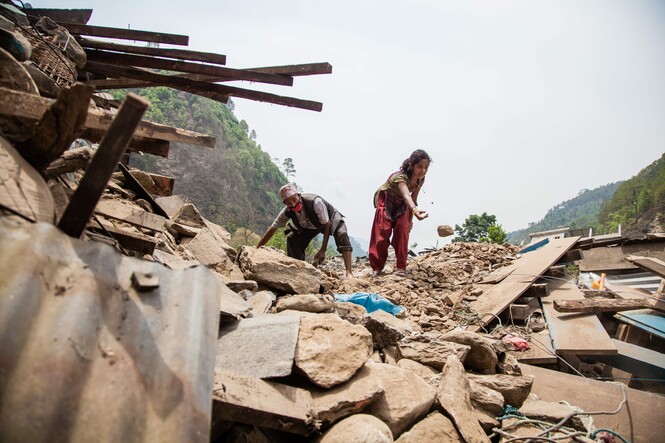
The conference, Rights, Responsibilities and Disasters: Using the Law to Reduce Disaster Risk in Asia Pacific, the first of its kind in Asia Pacific, brings together academics, practitioners and policymakers from Aotearoa and around the world, and is organised by the LEAD Institute of Law, Emergencies and Disasters, the International Federation of Red Cross and Red Crescent Societies (IFRC), the United Nations Office for Disaster Risk Reduction (UNDRR) and New Zealand Red Cross.
Finau Heuifanga Leveni, IFRC’s Disaster Law Coordinator for Asia Pacific says law might not be the first thing that comes to mind in a disaster, but it plays a critical role.
“Underpinning every disaster preparedness, response or recovery operation, or public health emergency, climate change adaptation initiative is a network of laws, policies and plans which determine who does what, when and how. Without a strong legal base, activities can be uncoordinated and ineffective, often delaying urgent help to the people who need it most.
“Asia Pacific faces more disasters than anywhere else in the world, and with climate change, disasters are increasing in frequency and intensity. It is very clear that the need for strong and relevant disaster laws to help keep people safe and save lives is greater than ever.”
Professor John Hopkins, the Director of LEAD says the conference aims to increase understanding of disaster law and to help turn global disaster law commitments into local action.
“The role of law in preventing and managing disasters is at the heart of disaster preparedness and prevention. The UN General Assembly has explicitly recognised and prioritised this and it’s on the agenda at the upcoming foremost gathering of government ministers in Asia Pacific on disaster risk reduction.
“It could not be a more relevant time to discuss disaster law. The international commitments and directives are clear, we must now make sure they have an impact at the local level.”
Marco Toscano-Rivalta Regional, UNDRR’s Chief of the Regional Office for Asia and the Pacific says while disaster frameworks are helping, more work is needed.
“Frameworks for disaster preparedness and response have yielded positive results and saved lives, however, as disasters and disaster risk are increasing rapidly, much stronger normative frameworks for prevention and disaster risk reduction are needed.
“Frameworks should have a solid foundation in human rights law to ensure that development practices and investments are risk-informed, disaster risk is disclosed, and recovery and reconstruction are planned ahead of a disaster, ensuring a holistic approach by state institutions and all stakeholders.”
The conference is held against two significant moments for disaster law. This year, the body of disaster law marks its 20th anniversary from when it was formalised as a priority area of work by the IFRC. Discussions are also underway regarding developing a global treaty – the first of its kind- to help save lives and keep communities safe by strengthening the management of disasters and disaster risk.
The conference is supported by the Australian Government, the Australian Red Cross, QuakeCoRE Te Hiranga Rā, The Faculty of Law | Kaupeka Ture at UC and the University of Canterbury Law Review.
For more information visit https://apdisasterlaw.wixsite.com/disaster-law